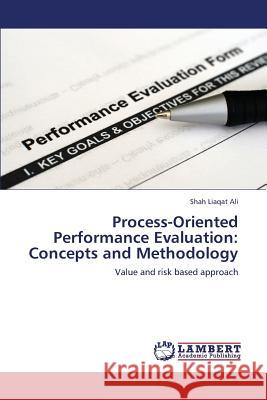Process-Oriented Performance Evaluation: Concepts and Methodology » książka
Process-Oriented Performance Evaluation: Concepts and Methodology
ISBN-13: 9783845416151 / Angielski / Miękka / 2013 / 348 str.
Performance measurement and management (PM&M) poses daunting challenges to organizations in terms of meeting multiple stakeholders' objectives. Evaluation of these objectives, and hence performance is essential for many reasons such as monitoring and control, diagnosis, improvement, learning and decision-making. Performance measures as descriptors of performance are the key tools in this evaluation process. However, the multidimensionality of performance, the inter-dependencies among performance measures and the pursuit to manage many dimensions of performance complicate this process. The uncertainty regarding objectives satisfaction adds further complexity to the evaluation process. To deal with these issues, a value-risk based PMS is developed. The proposed system consists of a conceptual model and a methodological framework. The former integrates consistently the concepts relevant to objectives, activities and risks in one framework and conceptualizing the idea of value and risk based performance management, while the latter transforms the expectations and fears of stakeholders into value and risk indicators respectively for informed decision making.
Performance measurement and management (PM&M) poses daunting challenges to organizations in terms of meeting multiple stakeholders objectives. Evaluation of these objectives, and hence performance is essential for many reasons such as monitoring and control, diagnosis, improvement, learning and decision-making. Performance measures as descriptors of performance are the key tools in this evaluation process. However, the multidimensionality of performance, the inter-dependencies among performance measures and the pursuit to manage many dimensions of performance complicate this process. The uncertainty regarding objectives satisfaction adds further complexity to the evaluation process. To deal with these issues, a value-risk based PMS is developed. The proposed system consists of a conceptual model and a methodological framework. The former integrates consistently the concepts relevant to objectives, activities and risks in one framework and conceptualizing the idea of value and risk based performance management, while the latter transforms the expectations and fears of stakeholders into value and risk indicators respectively for informed decision making.











